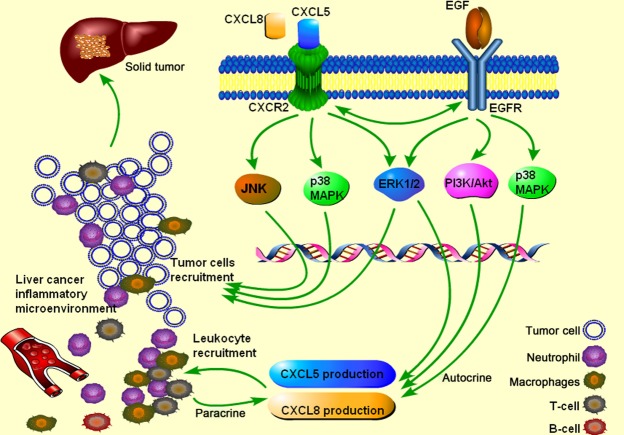Fig 10.
The role of epidermal growth factor (EGF-EGFR) signalling pathway in hepatocellular carcinoma (HCC) inflammatory microenvironment. The role of EGF-EGFR signalling pathway in the department of inflammatory microenvironment of HCC. HCC cells per se could produce inflammatory factors such as CXCL5 and CXCL8, probably responsible for the recruitment of leucocytes and HCC metastasis. EGF may act as an initiator factor to facilitate the transforming process of tumour cells from low metastatic potential into high metastatic potential, associated with the regulation of tumour progression. The potential mechanism indicated from the present study is that EGF may combine with its receptor EGFR to initiate the downstream of PI3K and Erk signal pathway and contribute to HCC proliferation, migration and production of inflammatory cytokines. HCC-produced inflammatory cytokines further form dynamic networks in tumour microenvironment and interact with each other. CXCR2 as the co-receptor of CXCL5 and CXCL8 probably have the cross-talk with EGFR. CXCL5 and IL-8 may further regulate the inflammatory microenvironment by combing with CXCR2.

